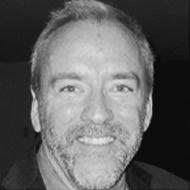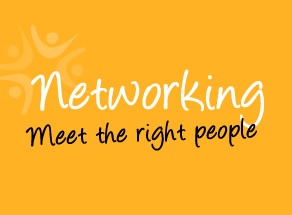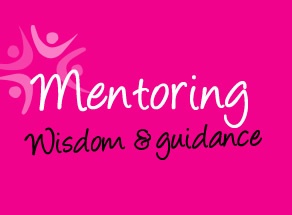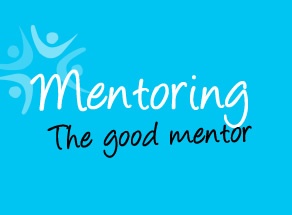
Dr. Diana Ramos Shares Her Journey to Becoming a Doctor – and How to Tell the Good Mentors from the Bad
05/02/2016 10:55PM | 15399 viewsDr. Diana Ramos always wanted to be a doctor from as far back as she can remember. The dream was so strong that she found a way to make it real, even after a detour that came about after some discouraging words – a lesson learned about seeking out the right mentors.
But there were other obstacles to overcome well before that, right from the beginning. Though she knew at a young age that she wanted to help people as a doctor, knowing how to make it happen was another matter. Growing up in South Central LA, the only child of a single mother, made it difficult to see the path, much less start out upon it.
The light to that path was her mother, who made sure she got a good education and worked two, sometimes three jobs to send her to a private prep school in west LA. But other than getting good grades, Dr. Ramos didn’t have a plan for getting into college – mostly because she didn’t know what else was required, or even what colleges were out there, beyond well-known institutions like Harvard and Yale, and locally, USC and UCLA.
This is one reason she advises seeking out mentors from a young age, because they can open up your knowledge about the many choices out there for higher education and help guide you through the selection and admissions processes.
After graduating the third highest ranking student in her high school, Dr. Ramos received a full merit scholarship to USC. Again, had she not earned a scholarship based on her grades, a mentor could have pointed out other avenues for financial assistance, which are available for family’s with limited income, certain minorities and cultural groups, education grants for women, and so on.
Once at USC, Dr. Ramos finally began learning about how to get into medicine. She joined the premed group there and found a mentor at the Keck School of Medicine of USC, the dean of minority affairs, who advised her what classes to take, and other information she needed, such as studying for the MCAT® (Medical College Admission Test).
It was then, starting out as a biology major, that she heard those discouraging words from her biology counselor, who was also one of the premed counselors. He told her that she would never get into medical school because her grades were not good enough – and advised her to find another dream.
This is a sign of a mentor not quite up to the job. Instead of offering support and help getting her grades up, he planted seeds of doubt. Instead of telling her what she could do, he told her what she couldn’t do.
At the time, it was enough to temporarily shift her focus. She switched from biology major to communications major, figuring it was a skill she could use in any profession, including medicine. But as a communications major, she didn’t have all of the premed courses she needed to get into medical school. She remedied that situation by completing the science courses she needed in a post graduate program at UC Irvine. From there, she got into USC Medical School – and was finally on her way to becoming a doctor.
And in fact, Dr. Ramos became an OB/GYN and went into residency at USC. She got her Masters in public health 10 years after finishing medical school – where her communications studies also proved beneficial.
Today, she wears many hats, including adjunct assistant clinical professor at USC, and Director for Reproductive Health for the LA County Department of Public Health. Not only does she get the joy of delivering new babies into the world, but she’s in a position to help improve the health of reproductive age women in LA County (see the related article about her program for new mothers: Choose Health LA Moms[MJO1] ).
Dr. Ramos also gives lots of talks and shares her story with college students, premed students, even OB/GYN residents, to encourage them to never to give up, and to know that when things get difficult, it’s just part of the journey.
“My mom recently reminded me of how I had to type everything by hand and I must have typed 80 letters looking for scholarship money,” she explains by way of example. “And if I needed to look something up, I had to go to the library. Nowadays everything is available online and at your fingertips. That can be a blessing and a curse. You can’t grow complacent and expect everything to come to you. You still have to do your research, work hard and stay hungry to succeed.”
Dr. Ramos believes mentors are crucial not just for medicine, but for any career you want to pursue. Mentorship is something she says those in the Latino community don’t take advantage of enough, perhaps not realizing how much it can help. Mentoring also leads to networking, something many people don’t practice until later in their careers – when they could have been talking to experienced professionals and getting advice from them all along the way.
“I recently heard from somebody I had mentored who had tried for about four years to get into medical school and she wrote to tell me that she finally got in,” relates Dr. Ramos. “It’s your job as a mentor to let them know they can do it, even when it doesn’t happen right away.”
Her three take-away pieces of advice for those in similar situations:
Stay focused. Many times it’s easy to get distracted by other activities and life in general, and we forget to stay focused on what it is we’re really working toward. Look at each activity throughout your day and how you’re spending your time, and ask yourself if it’s truly leading you to your goals.
Be curious. Ask questions as much as possible and try to understand why things happen, not just how. Curiosity will ultimately make you a better health care provider, because you’ll ask your patients more questions, really listen to their answers, and be better able to respond to their needs.
Never give up. When someone tells you no, don’t let it deter you. Think of “no” as an opportunity to reconfirm your commitment and ask yourself: how else can I approach this and what do I need to do differently to get to “yes?”






Post your Comment
Please login or sign up to comment
Comments